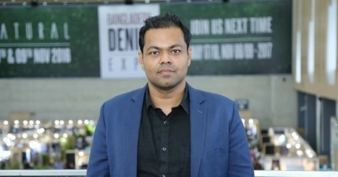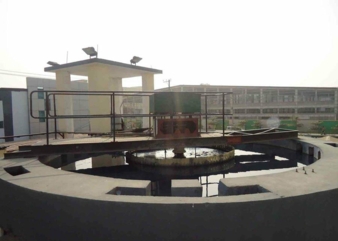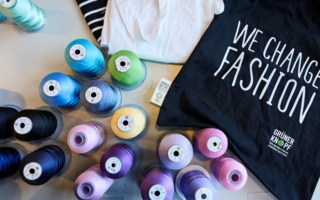09/10/2017 – Bangladesh — auf Deutsch lesen
Water sustainability in Bangladesh
Water means life! Water sustainability is a vital issue for Bangladesh´s textile industry!
Bangladesh, the biggest delta in the world and historically a riverine country, is yet facing problems with a lack of usable water. About 18 million residents of Dhaka, the capital, are being threatened by extremely high levels of pollution. The rivers are so polluted as to be deemed “ecologically critical.” The pollution of the surface water is putting additional pressure on the groundwater resources that supply drinking water for 80 percent of Dhaka´s residents. The ground water level in Dhaka is sinking 2-3 meters every year because of the high level of consumption.
A view on Dhaka
Industrial pollution accounts for 60% of the water pollution in Dhaka. Most of the garment and textile factories of Bangladesh are situated in Dhaka and on its outskirts. It’s evident that the textile and apparel factories are a part of the pollution problem. A textile mill uses an average of 100,000 cubic meters of water per month. About 150 liters of water are required to process 1 kg of cotton and cotton blend fabric. Cleaner Production Intervention designed by IFC PACT revealed that water metering and monitoring systems in 10 Bangladesh factories saved 2.7 million cubic meters of water, which is 22.5% of their total annual consumption. This shows that each factory is able to save an amount of water which is the equivalent to 160 times the size of an olympic pool.
So, while the industry needs to apply pollution free operation systems, methods for conserving and recycling this precious resource need to be adopted to stop misuse of any drop of water. It is heartening to note that the apparel and textile industry in Bangladesh has started embracing sustainable business models. Brands are also putting emphasis on sustainability while going to longer business relationships with suppliers as consumers are now becoming more conscious and choosing to spend their money on products which do not harm the planet. There has been a commendable stride in sustainable apparel production in Bangladesh.
Sustainable Production in Bangladesh
The presence of as many as 67 LEED certified green factories and 220 more registered in the United States Green Building Council (USGBC) for the certifications is the telltale evident of the fact.
Factories like Denim Expert Limited are setting trend in sustainable business models to be followed by others. Denim Expert has undertaken a range of remarkable initiatives to reduce, reuse and recycle water which could be an example of how the second largest apparel exporting country of the world can also take the lead in global sustainable apparel production.
Measures taken by Denim Expert are: rain water harvesting, using zero discharge of hazardous chemicals, ETP discharge water, use of waste water in PP spray booth, wash recipe per garment weight, material liquor ratio for washing, reduction of rinse water, multi-functional chemicals, advanced machines for washing, waterless direct softener injection and awareness trainings for staff.
by Mostafiz Uddin





